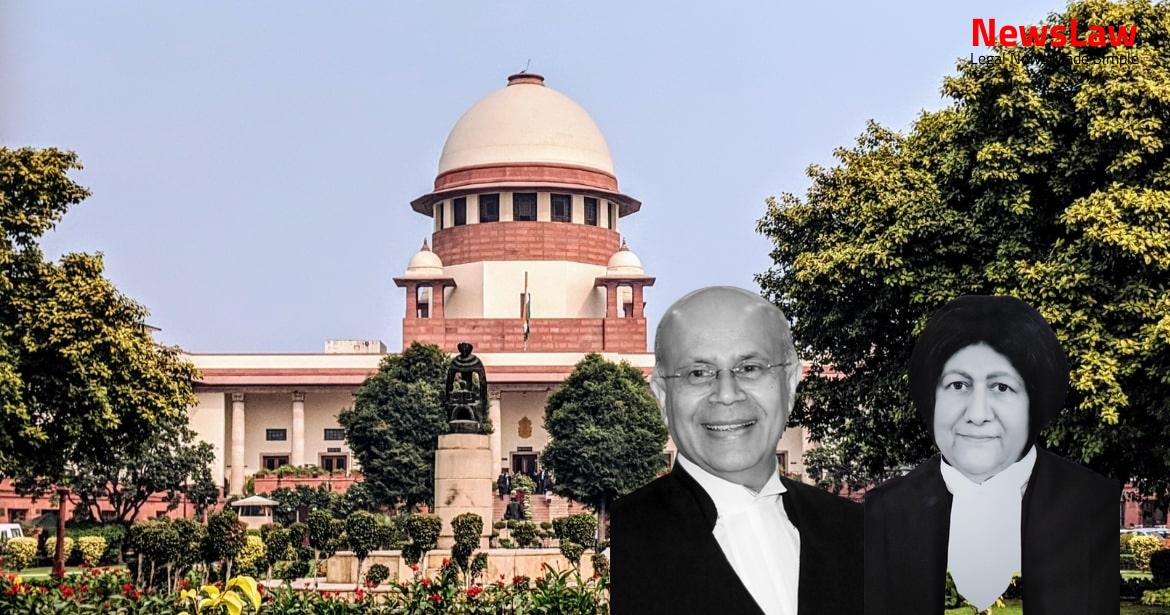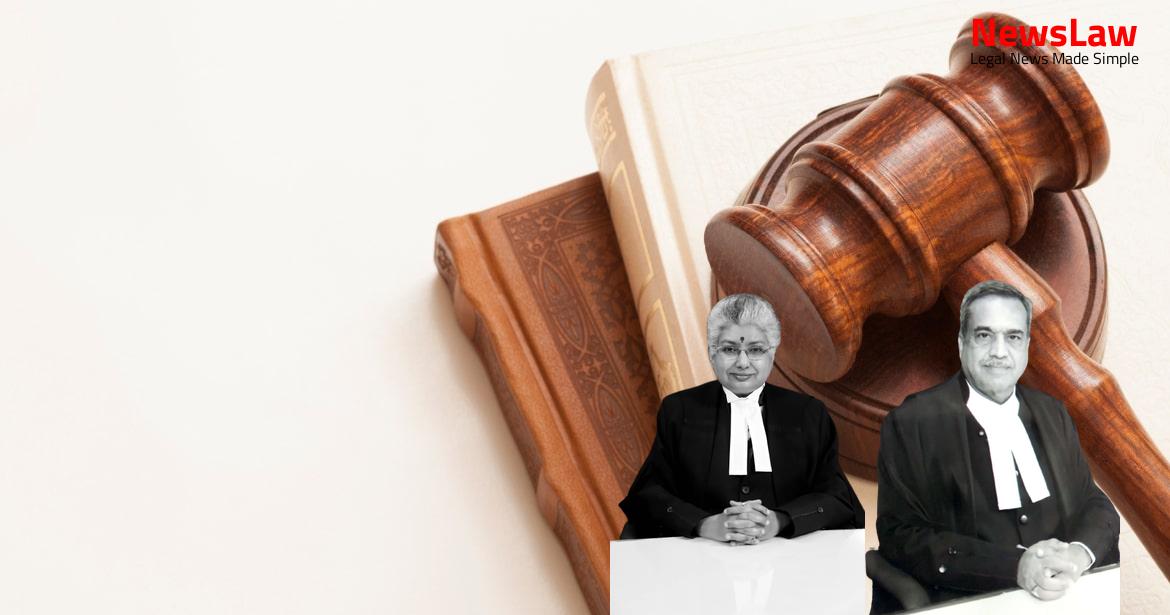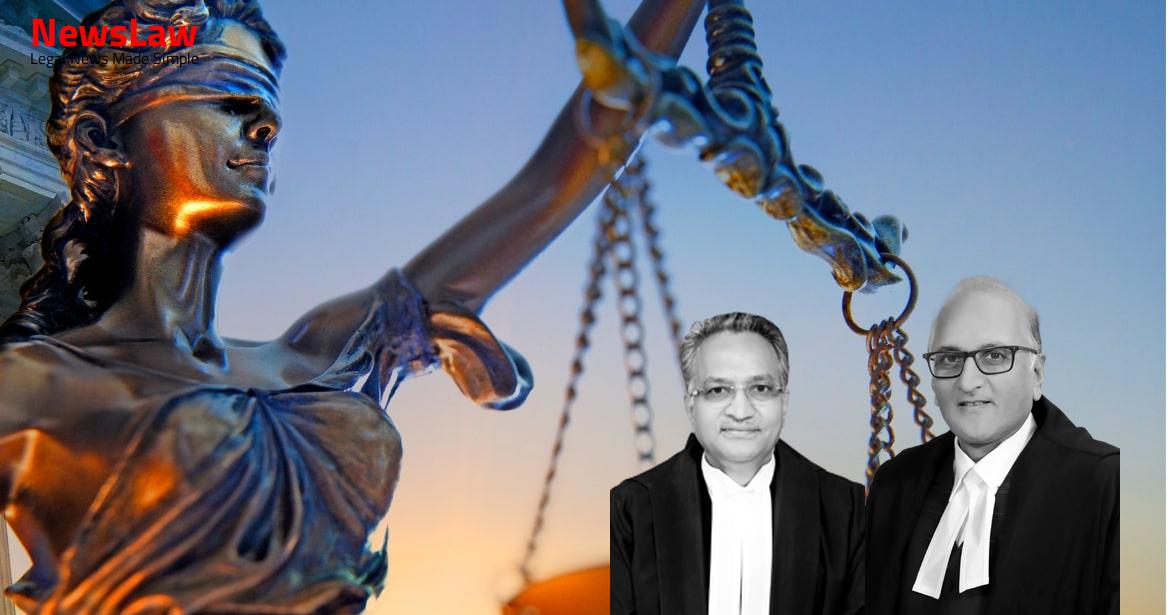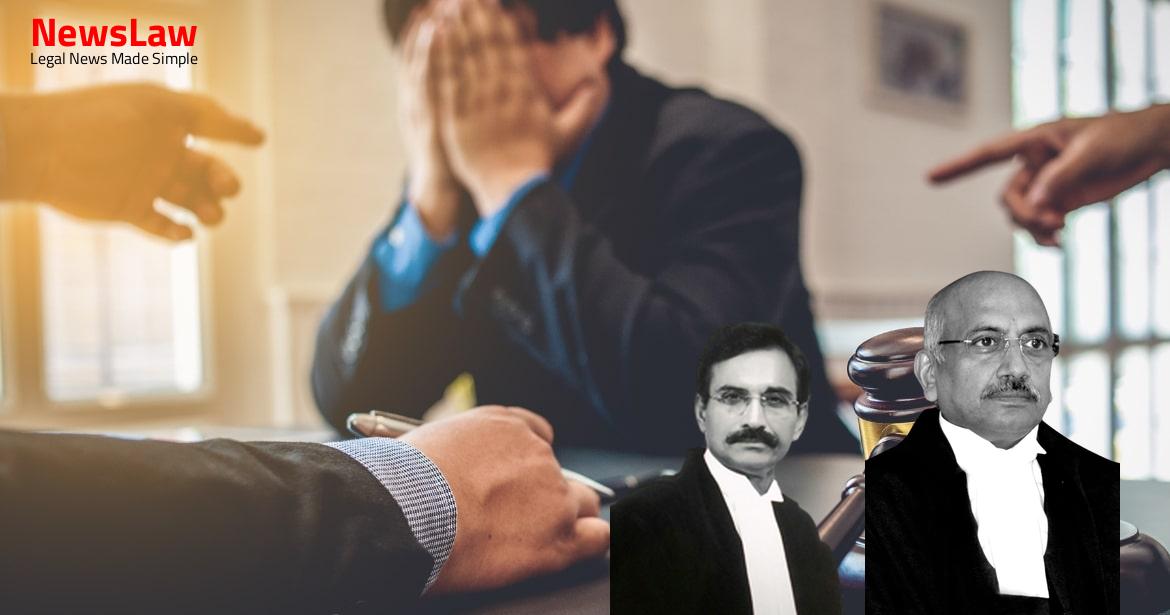Delve into the intricate legal analysis conducted by the court in a recent case focusing on the cancellation of written instruments. The judgment provides valuable insights into the application of specific legal provisions, the interplay between different Acts, and the significance of declarations and rectifications in contract disputes. Stay informed about the legal principles governing disputes and the crucial role of the court in addressing complex legal matters.
Facts
- Deed of confirmation dated 13.07.2006 stated to be part of the 20.05.2006 agreement, reaffirming the assignment by Ashray to Regency.
- Allegation of fraud by Mr. Atul Chordia (Respondent No.3) towards Deccan in Special Civil Suit No. 1400 of 2010.
- Defendant No.3 assured Deccan of being a leading partner in M/s Regency Mahavir Properties and quick development of the property.
- In 2006 or around that time, Defendant No.3 approached directors of Deccan and proposed development of the property through a partnership firm named Regency Mahavir Properties.
- The Additional Judge, Small Causes Court, Pune passed a judgment on 19.07.2011.
- After hearing both parties, the judge concluded that the writ petition was dismissed.
- As a result of the dismissal, the parties involved were referred to arbitration.
Also Read: Legal Analysis on Physical Ability in Rape Case
Issue
- An agreement was made on 22.07.2004 between Deccan Paper Mills Co. Ltd. and M/s Ashray Premises Pvt. Ltd. regarding the development of a portion of land owned by Deccan.
- Deccan owned approximately 80,200 sq. meters of land in Pune.
- Under the agreement, a portion of 32,659 sq. meters was decided to be developed by Deccan.
- The specific details of the agreement are not essential to understanding the controversy in this appeal.
Also Read: Legal Analysis on Admissions and Document Consideration in Insolvency Case
Arguments
- The petitioner argued that serious allegations of fraud were raised in the case, which rendered the dispute non-arbitrable.
- She highlighted the provisions of section 31 of the Specific Relief Act, 1963, stating that the suit was for the cancellation of three written instruments.
- The petitioner relied on the judgment in S.B.P. & Co. v. Patel Engg. Ltd. to emphasize that the correct application of section 8 requires a consideration of whether there exists an arbitration agreement and if the subject matter is arbitrable.
- It was pointed out that the original agreement between Deccan and Ashray did not have an arbitration clause, and since the suit sought to set aside that agreement, the dispute should not have been referred to arbitration piecemeal.
- The cryptic judgment of the Bombay High Court should be set aside
- The suit should be set down for hearing and disposed of within a short timeframe
- Case law since N. Radhakrishnan indicates that it has no precedent to stand on
Also Read: Analysis of Transfer of Winding Up Proceedings to NCLT
Analysis
- The agreement contained clause 7(m), allowing the Developer to assign or delegate rights without violating the terms.
- There was no arbitration clause in the agreement.
- The court may send a copy of its decree to the registration officer if the instrument is registered.
- Cancellation of an instrument may be ordered under certain circumstances.
- In case of mutual mistake or fraud in a contract, rescission and cancellation may be directed by the court.
- Rectification of an instrument may be done if it does not express the real intention of the parties.
- The court may order compensation or benefit restoration upon instrument cancellation.
- Rescission of a contract can be requested by any interested party.
- Alternative prayer for rescission in a suit for specific performance is permissible.
- The court has discretion regarding the declaration of status or rights in a legal matter.
- The declaration made by the court may have an effect on the legal relationship between the parties involved.
- The Defendants may be restrained from further development activities by an order of perpetual injunction.
- There was an agreement between Ashray and Regency where rights were assigned on 20.05.2006.
- The agreement between Ashray and Regency contained an arbitration clause in clause 14.
- The judgment delves into the application of section 31 of the Specific Relief Act in the context of cancellation and declaration of agreements related to property development.
- The fraud alleged by the plaintiff is emphasized as the basis for seeking the cancellation of the agreements.
- The argument regarding the designation of the court’s jurisdiction in cases of cancellation of written instruments being in the interest of the party is discussed.
- Reference to the High Court judgment in Aliens Developers is made to question the correctness of the law laid down in that case and suggest it should be overruled.
- The importance of distinguishing between actions in personam and in rem, especially in the context of cancellation of deeds, is highlighted.
- The requirements and implications of specific sections of the Specific Relief Act, such as sections 31, 34, 35, and 39, are elaborated upon to elucidate the legal principles governing the dispute.
- The interaction between the Specific Relief Act and the Arbitration and Conciliation Act in resolving disputes related to contracts is examined.
- The aspect of seeking rectification of contracts and the process of cancellation in specific circumstances are defined and analyzed in the judgment.
- The relevance of arbitration agreements, legal character declarations, and rectification suits is outlined to determine the course of action in the present case.
- Inconsistencies in the interpretation of specific legal provisions by various High Courts are identified, and a unified understanding based on legal principles is advocated.
- The obligation of competent courts in sending cancellation decrees and the implications of fraud on the validity of agreements are discussed in detail.
- A judgment in rem is defined as an adjudication pronounced by a tribunal with competent authority that determines the status of a person or thing, including the jural relations of the person or thing to the world generally.
- Proceedings under section 31 are specific to persons and not directed towards all parties concerned with the property in question.
- An instrument that is void or voidable against the executant may lead to a suit for cancellation, which can be decreed only when deemed void or voidable by a competent court and poses a risk to the true owner.
- The principle behind Section 31 is to safeguard a party or a person with derivative title from potential misuse of an instrument against them.
- Public documents mentioned in section 74 aim to protect the originals of public records from risks associated with constant production in evidence.
- Proceeding in rem actions can be directly against the property to determine its disposition without focusing on individual claimants, or in a broader sense to address property ownership and rights among parties and other claimants.
- A judgment in rem conclusively settles the fate of the property in question and binds all individuals, even those not part of the litigation, while a judgment in personam deals with the parties’ rights relative to the property.
- Section 35 of the Specific Relief Act covers the rescission of voidable contracts, expanding to void documents that need not be set aside but may cause potential harm if left unaddressed.
- The court may grant cancellation of an instrument if it is void or voidable against the plaintiff, poses a risk of serious harm, and if the court deems it necessary to prevent such harm.
- Declarations under the Specific Relief Act are binding on parties involved in the suit and those claiming through them, as well as on trustees representing the parties.
- Fraud vitiates solemn acts, conspiracies to deprive others of property rights make transactions void ab initio, and discretion in specific performance suits can be agreed upon for arbitration.
- Cancellation of the deed by a non-executant is an action in personam.
- Cancellation by an executant under section 31 would convert the suit into a suit being in rem.
Decision
- The application is allowed.
- The plaintiff is directed to resolve the alleged dispute through the process of arbitration.
- The plaintiff is referred to invoke the process of arbitration as per the arbitration clause 14 in the agreement dated 20.05.2006.
Case Title: DECCAN PAPER MILLS CO. LTD. Vs. REGENCY MAHAVIR PROPERTIES . (2020 INSC 497)
Case Number: C.A. No.-005147-005147 / 2016



